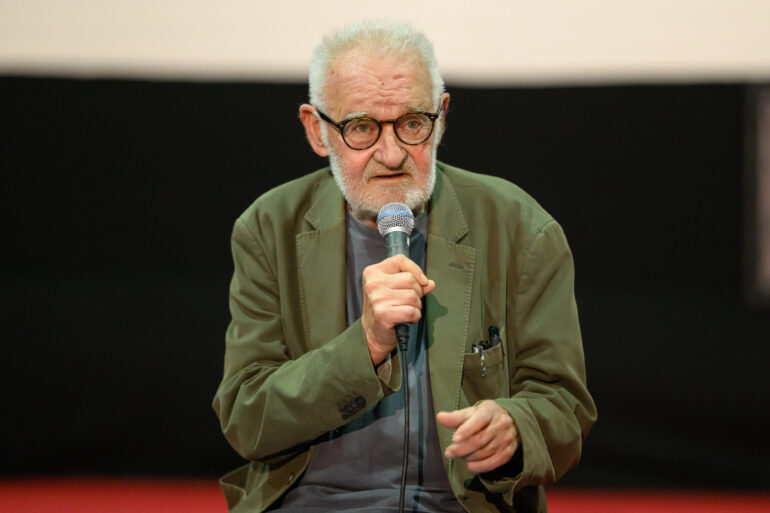Béla Tarr: ‘When you see a movie, you see the director naked and you see who he is. You can not hide yourself.’
The Hungarian film director Béla Tarr is being honored this year at TIFF.24, where eight of his feature films are being screened. The director will receive the Lifetime Achievement Award during the Closing Gala, tonight, June 21, at the Cluj-Napoca National Theatre. Béla Tarr is one of the pillars of the European cinema, being an inspiration for filmmakers around the world.
Back in the day you expressed your dissatisfaction towards storytelling, mentioning that every story is the same, or that everything has already been said. This could be seen as quite an unpopular statement. Do you still have the same views on this matter?
You know, we all are different and you see different things in life than me. And we just try to learn. When you are a filmmaker, your job is you have to share with the people what you see and this is the main issue. And of course, the differences are interesting, not the story. For example, I know some filmmakers, some of them are my friends, but we see different things, but if I see he is honest and powerful, in this case, sometimes I don’t know what is the story, I’m just watching the pictures. When you see a movie you see the director naked and you see who he is. You can not hide yourself.
You once said that your films are close to life, mentioning that most of what you saw in cinema and news was and still is somehow fake. What make your films closer to life than the films of other filmmakers who use a different approach to cinema and stories?
I don’t know if it’s different or not. I don’t know what this means for you. Of course, my goal is to touch you, but I don’t know, I don’t have a recipe. And I told you, the key question is honesty. If I’m honest, and of course, you have to have enough strength and enough charisma to catch you. If I can not, in this case, I failed.
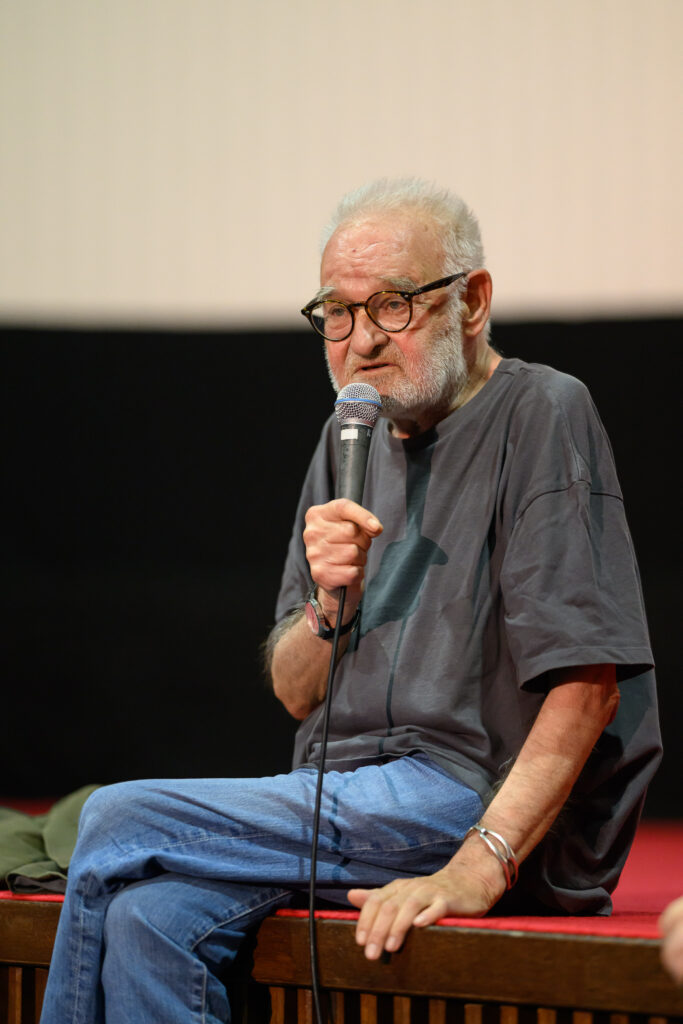
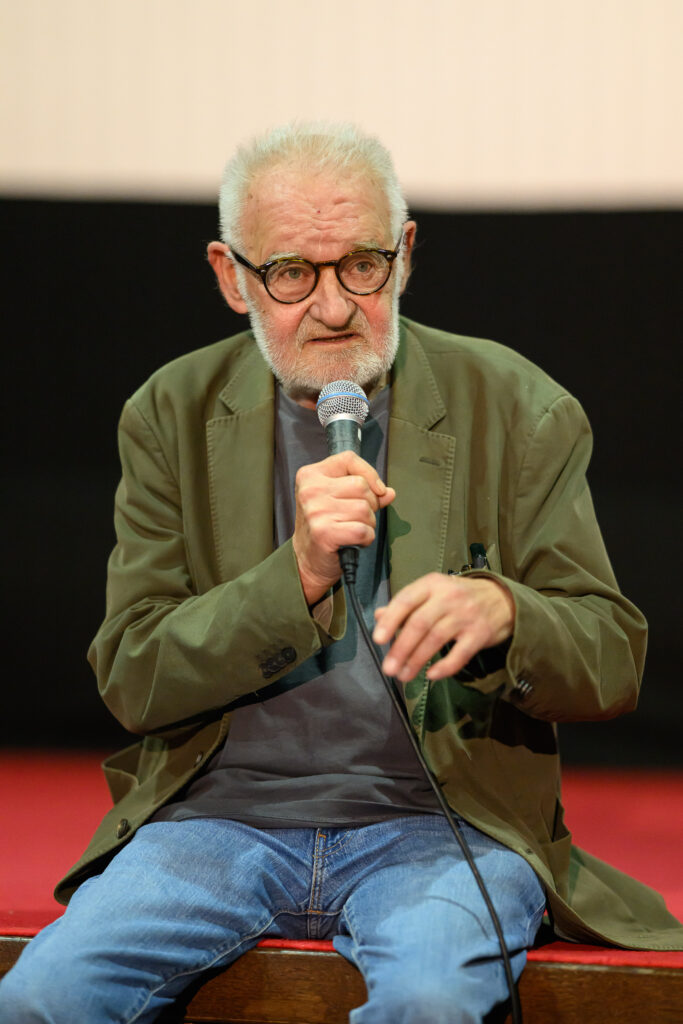
Can you name a few contemporary filmmakers that you appreciate and / or feel that are coming close to a real kind of cinema? Is there something that impresses you in cinema today?
You know, I was doing film school in Sarajevo, which was, let’s say, an unorthodox film school. For example, we did not have lectures and we did not have this kind of school system. My goal, it was written as a kind of slogan ‘No education, just liberationʼ. You know, these people came from all corners of the world: Japan, Singapore, India, Latin America, Mexico or the States and the whole Europe: from England, from the Faroe Islands, from Iceland, from France, Poland, Portugal, Spain, you know. From everywhere. And I did not have teachers and I just invited some filmmakers who came and, of course, they are different, but they are my friends and I respect them. Let’s say some names. Apichatpong Weerasethakul, Carlos Reygadas, Guy Maddin, Gus van Sant and some film theoreticians. Everybody was there for two weeks. Filmmaking looks like a kitchen. But each one has a different kitchen and they are doing different food. Apichatpong and Carlos, they are so different, but I love both of them and I respect both of them, or the others who came, of course, I was respecting them. And I invited some actors, too, that I like and respect. I invited Tilda Swinton, Juliette Binoche, Gael Garcia Bernal and a lot of interesting people. We had totally different ways. Because if you are a young filmmaker, you can hear it, how Carlos is working in this point and Apichatpong is on a different planet. Or Tsai Ming-liang, he came, too. Those people, I love them and they were just open and the young people can see the differences. This was a key issue. Pedro Costa, for example. Many of them came and it was really good. But now it’s closed, because it was a private university and, of course, the students have to pay tuition, but I did not choose bankers’ kids, I chose good filmmakers, very talented. But by the end I was living there for four years and I signed 22 diplomas. That was a big experience. If you ask me about contemporary cinema I can those names: Pedro, Apichatpong, Carlos and the others.
How do you see the future of slow cinema in such a fast paced world, especially in regards to the way audiences relate to it?
I don’t understand what this means, slow cinema.
Films with fewer cuts…
It is a different way of timing, how we see life. Because your life is not fast. You do almost the same things every day. You believe I will show up like in an action film? Not, surely not.
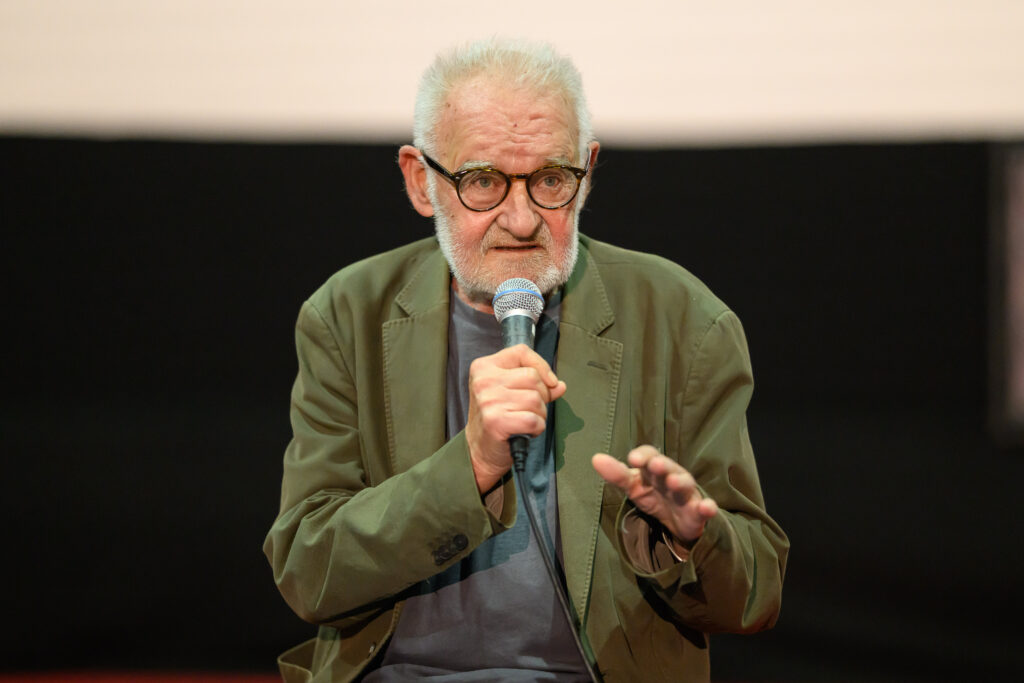
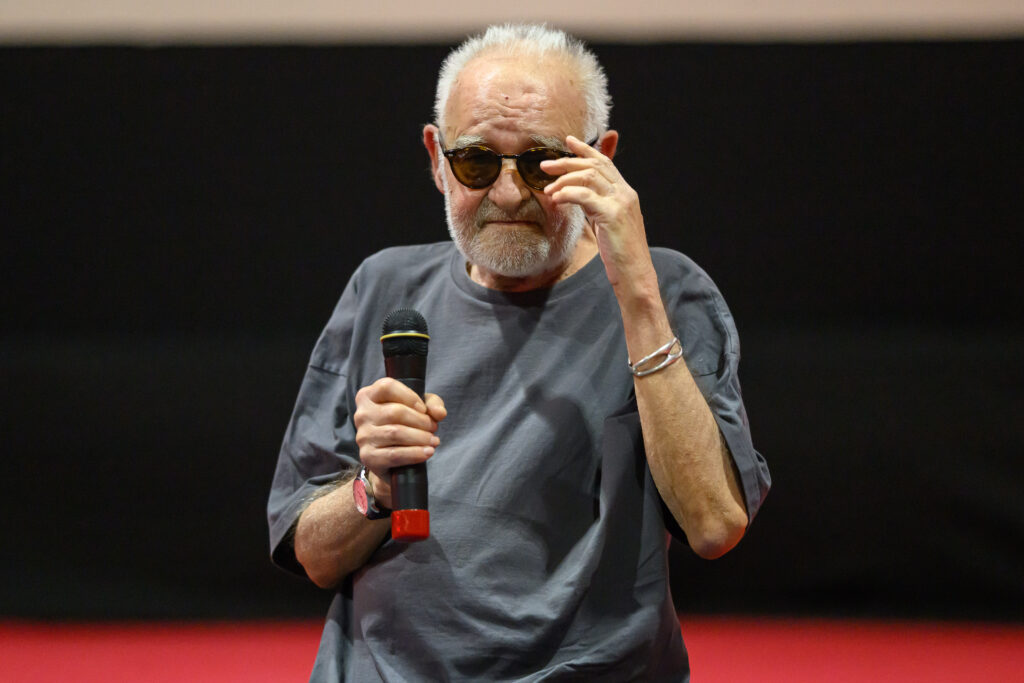
I am referring to the fact that people are now used to their information being very fast delivered, especially because of social media platforms like tik-tok and so on…
No, this is depending by your personality and your sensibility. If you have sensibility for life, you will have a different time. I don’t know what is this tik-tok, really. I never use it, I don’t have Facebook, I have maximum email and I’m reading the news.
This year’s festival theme is strongly connected to the emergence of A.I., we even have a film section dedicated to films that explore the use of A.I., that tell stories about dystopic worlds where mankind is threatened in various ways by this. How do you see the future of cinema in a world where people already increasingly rely on A.I.?
I don’t know what this Artificial inteligence is, but I know what life is. And if I listen to life, I surely don’t need this kind of shit. Really. It’s enough if you have two eyes, if you can smell the air, if you can see miserable people and how it’s going with them. It’s a question of your sensibility. I really don’t believe in this kind of fake shit. Sometimes they ask me what my advice for young filmmakers is… My answer is very simple. They have to be themselves. They have to find their own language. And you know what? If you have a phone you can shoot with this phone and you can edit it on your laptop and you can distribute it on the internet. You can say `fuck off` to this film industry, to this whole profitory business shit. Because it’s no reason to do… You will be a prisoner of this situation. No reason to wait for the money or for a kind of favour from them.
Masterclass Béla Tarr – 21 iunie, 10:30 / Hotel Radisson Blu
Damnation – 22 iunie, 17:15 / Universitatea Sapientia

